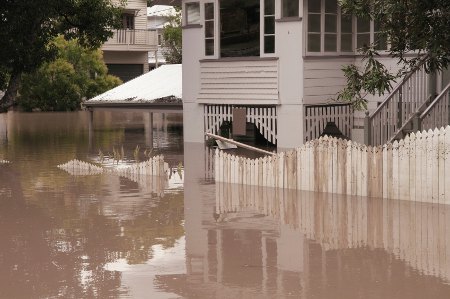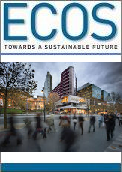
|
Published: 24 October 2011
Call for stronger response from leaders on climate change
A new report produced by the United Nations Development Programme, United Nations Environment Programme, World Bank and World Resources Institute calls for a stronger approach to decision-making on climate change by the world’s leaders.
The report, entitled Decision Making in a Changing Climate explores challenges and offers recommendations for national policy makers to make informed and effective decisions to respond to the changing climate. The report is the latest edition of the influential World Resources Report.
‘Climate change is a vast, complex, and urgent issue for national leaders. What’s clear beyond doubt is that the decisions leaders make today will have a profound effect on their countries’ ability to find real, lasting solutions to adapt to this global crisis,’ said World Resources Institute Interim President, Manish Bapna.
According to global insurance company, Munich Re, there were more than 950 natural disasters in 2010, 90 per cent of which were weather-related, costing at least $130 billion.
‘Climate change is not solely an environmental issue. It is an issue that needs to be taken into account in order to ensure that human development is sustainable over the long term,’ said Director of the Bureau for Development Policy at UNDP, Olav Kjorven.
‘Governments must start now to incorporate climate risks into plans and policies across all sectors, including urban development, coastal planning, agriculture, water and forestry management, and electricity production.’
Drawing on input from over 100 experts in over 35 countries, the report includes 12 case studies of responses to climate change, including wildfire management in Brazil, information sharing on agriculture in Mali and glacial flood management in Nepal.
However, adaptation efforts worldwide are still failing to meet the challenge.
‘Good policies for climate resilience and low-carbon development can be put in place at reasonable cost. The good news is that many developing countries in Africa and elsewhere are taking action to do just that,’ said World Bank Special Envoy for Climate Change, Andrew Steer.
The report identifies key challenges to decision making, including:
-
uncertainty about how some impacts – such as changing precipitation patterns and sea level rise – will unfold around the world
-
different levels of vulnerability between different communities
-
the need for tough decisions for transformational change, especially when leaders are faced with choices between short-term and long-term allocation of resources.
‘This report shows that smart adaptation investments, such as those in climate resilient agriculture in China, mangrove restoration in Vietnam, and watershed management in Rwanda, deliver multiple benefits, from food security to coastline protection to improved energy supply and ultimately help build the resilience of communities that are most vulnerable to climate change,’ concluded Kaveh Zahedi, Coordinator of UNEP’s Climate Change Program.
Source: World Resources Institute




